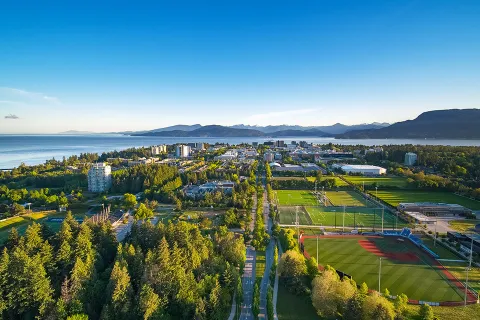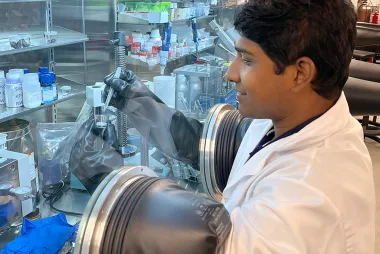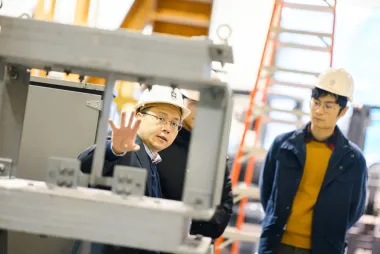UBC engineering, architecture and landscape architecture, and nursing rank among Canada's best

Disciplines within the University of British Columbia’s Faculty of Applied Science continue to place highly on the latest international and national subject rankings tables, demonstrating the Faculty’s calibre of research and teaching.
UBC Engineering ranks 25th globally on the QS World University Rankings for engineering and technology, and second-highest in Canada according to both QS and Times Higher Education subject rankings for 2025. The School of Nursing placed second on Maclean’s best nursing programs across the country, and 13th worldwide according to QS rankings for nursing. QS scored the School of Architecture and Landscape Architecture (SALA) in Canada’s top two for architecture and built environment as well.
“These rankings speak to UBC Engineering, Nursing and SALA’s outstanding research and commitment to an excellent educational experience,” said Dr. James Olson, Dean, Faculty of Applied Science. “Our faculty members are integrating policy, technology and design to solve problems relating to human inequity and climate change—and teaching students how they, too, can use those skills to positively transform our future here in British Columbia, Canada and the world.”
Shaping tomorrow’s leaders
UBC Applied Science graduates remain in high demand, with both the School of Nursing and UBC Engineering expanding programs this past term.
The School of Nursing increased the Master of Nursing-Nurse Practitioner degree program to become the largest of its kind in Canada, with 60 new students this past September. Graduates will be prepared to work as primary care providers in communities across BC, helping to address critical demands in the health-care system.
UBC Engineering has also begun to add 338 undergraduate engineering spaces across the Vancouver and Okanagan campuses for domestic students, with a focus on biomedical, chemical, computer, and integrated engineering.
Current students and recent graduates are already making waves in the communities around them, from collaborating in interdisciplinary groups to design engineering solutions for real-world humanitarian problems, to receiving highly competitive and prestigious awards like the Order of the White Rose and the Rhodes Scholarship.
Solutions for people, places and planet
Faculty of Applied Science members are applying their discoveries and expertise in building supportive communities and resilient cities to create lasting change.
Nursing researchers’ work in the past year spans launching an Indigenous parenting app that provides culturally relevant advice to young families and contributes to revitalizing language within the Okanagan Nation community, to highlighting the transformative impact of resident and family councils in long-term care settings.
Building healthy, sustainable cities is another recurring theme among UBC Applied Science faculty. A SALA-led “natural shade lookbook” identifies the best trees, shrubs and plants for shade to protect children in outdoor play spaces, while a recent transportation engineering and planning study examines the increase in e-bikes and other micromobility devices in Metro Vancouver, and suggests ways for municipalities to manage these devices on shared pathways.
Engineers on both campuses are also leading efforts for renewable energy, with the launch of a Smart Hydrogen Energy District at the Vancouver campus, and a new Battery Innovation Centre at the Okanagan campus to advance next-generation, solid-state battery technology. Together, these projects highlight UBC Applied Science’s role in driving forward the clean energy transition.










